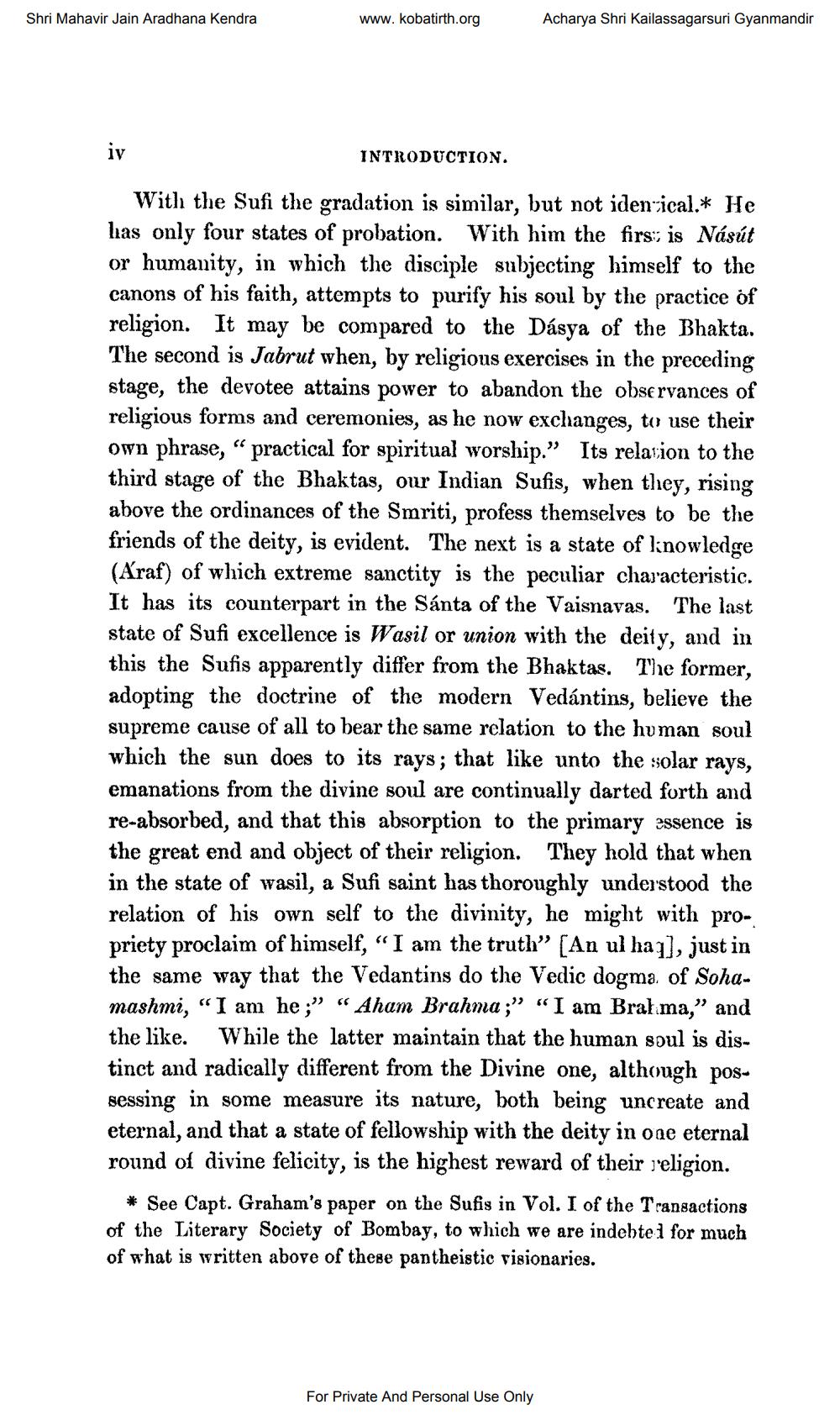Book Title: Chaitanya Chandrodaya Author(s): Kavi Karnpur, Vishvanath Shastri, Rajendralal Mittra Publisher: Bapist Mission Press View full book textPage 9
________________ Shri Mahavir Jain Aradhana Kendra www.kobatirth.org Acharya Shri Kailassagarsuri Gyanmandir INTRODUCTION. With the Sufi the gradation is similar, but not iden-ical.* He has only four states of probation. With him the firs: is Násút or humanity, in which the disciple subjecting himself to the canons of his faith, attempts to purify his soul by the practice of religion. It may be compared to the Dásya of the Bhakta. The second is Jabrut when, by religious exercises in the preceding stage, the devotee attains power to abandon the observances of religious forms and ceremonies, as he now exchanges, to use their own phrase," practical for spiritual worship.” Its relation to the third stage of the Bhaktas, our Indian Sufis, when they, rising above the ordinances of the Smriti, profess themselves to be the friends of the deity, is evident. The next is a state of knowledge (A'raf) of which extreme sanctity is the peculiar characteristic. It has its counterpart in the Sánta of the Vaisnavas. The last state of Sufi excellence is Wasil or union with the deity, and in this the Sufis apparently differ from the Bhaktas. The former, adopting the doctrine of the modern Vedantins, believe the supreme cause of all to bear the same relation to the human soul which the sun does to its rays; that like unto the solar rays, emanations from the divine soul are continually darted forth and re-absorbed, and that this absorption to the primary essence is the great end and object of their religion. They hold that when in the state of wasil, a Sufi saint has thoroughly understood the relation of his own self to the divinity, he might with propriety proclaim of himself, "I am the truth” (An ul hay], just in the same way that the Vedantins do the Vedic dogma of Sohamashmi, “I am he;" “ Aham Brahma;” “I am Brał ma," and the like. While the latter maintain that the human soul is distinct and radically different from the Divine one, although possessing in some measure its nature, both being uncreate and eternal, and that a state of fellowship with the deity in one eternal round of divine felicity, is the highest reward of their religion. * See Capt. Graham's paper on the Sufis in Vol. I of the Transactions of the Literary Society of Bombay, to which we are indebte i for much of what is written above of these pantheistic visionaries. For Private And Personal Use OnlyPage Navigation
1 ... 7 8 9 10 11 12 13 14 15 16 17 18 19 20 21 22 23 24 25 26 27 28 29 30 31 32 33 34 35 36 37 38 39 40 41 42 43 44 45 46 47 48 49 50 51 52 53 54 55 56 57 58 59 60 61 62 63 64 65 66 67 68 69 70 71 72 73 74 75 76 77 78 79 80 81 82 83 84 85 86 87 88 89 90 91 92 ... 294
